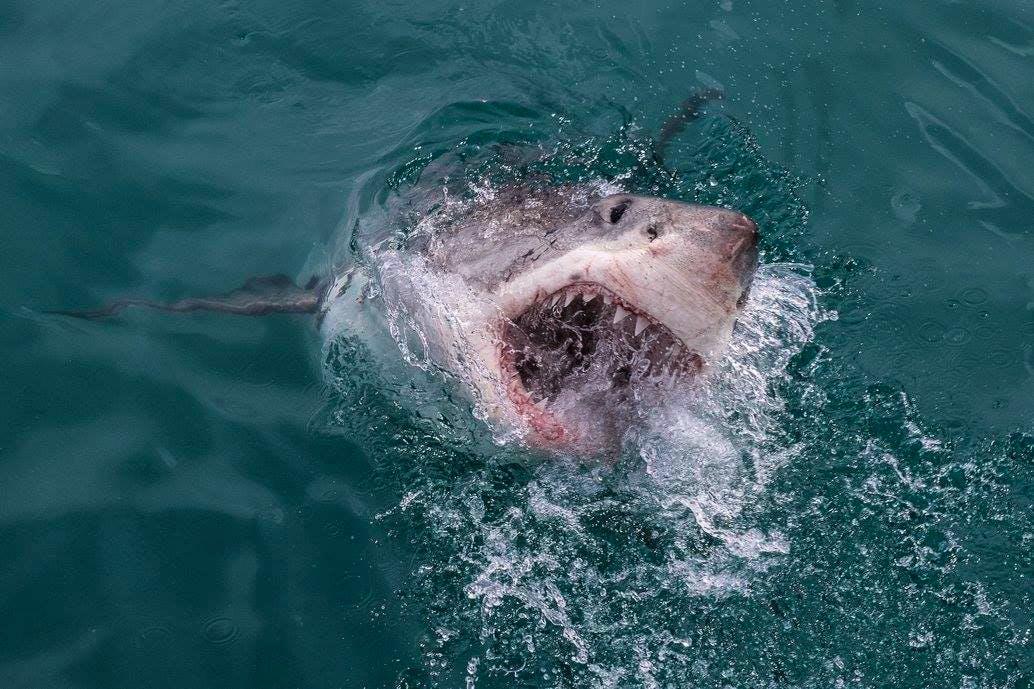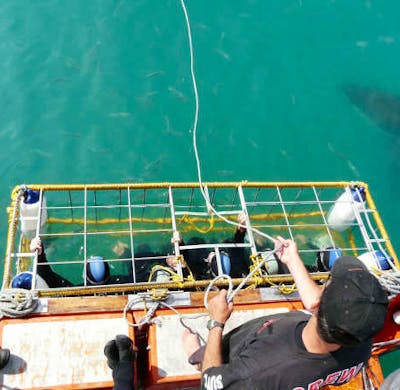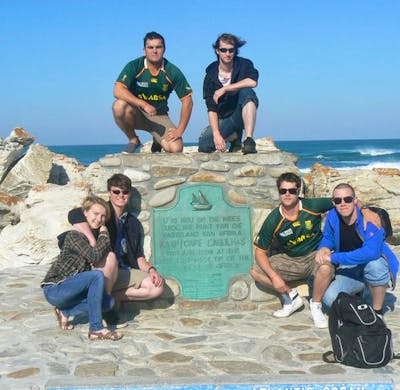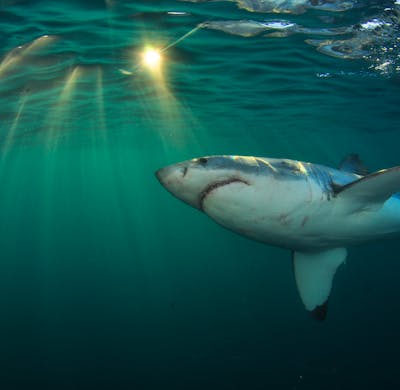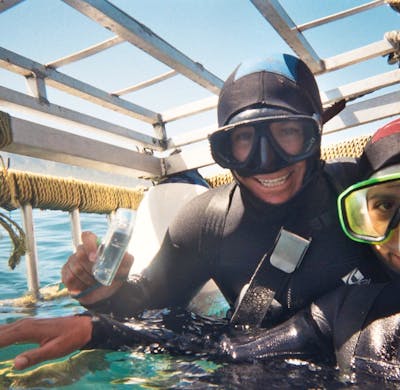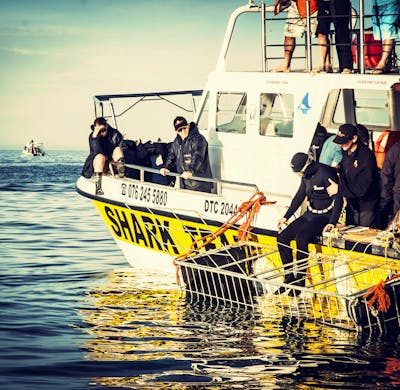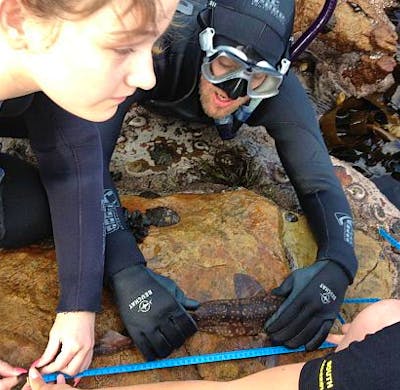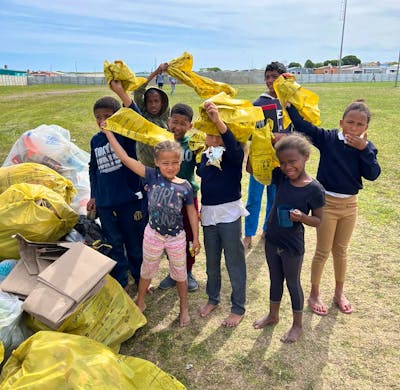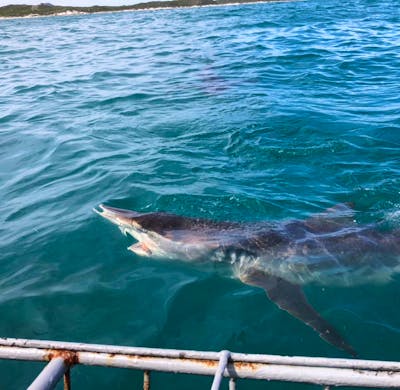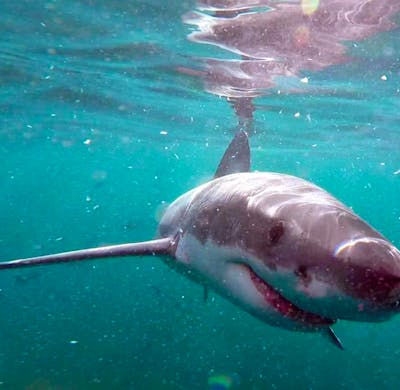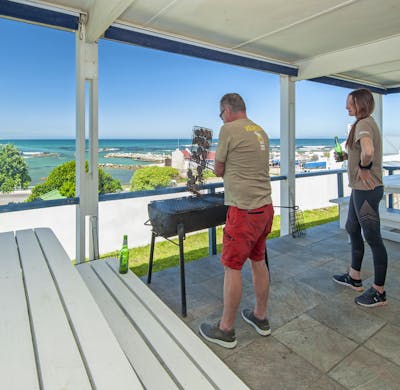2018 at Great White Shark Conservation
from 1,193€
Great White Shark Conservation
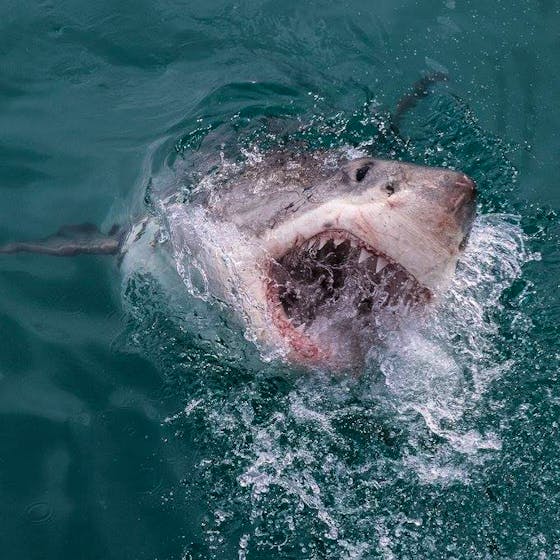
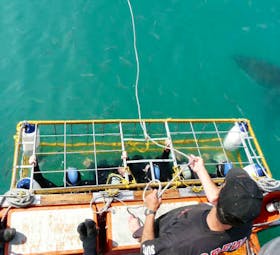
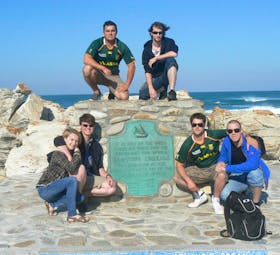
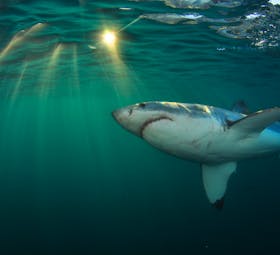
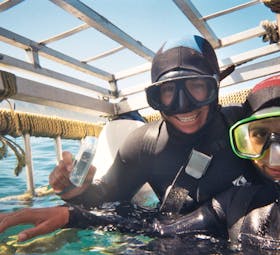
Highlights
- Volunteer and collaborate with students, eco-tourists, and conservation organizations in marine conservation
- Dive into thrilling adventures with shark cage diving to observe iconic predators up close
- Contribute to vital data collection for the conservation and analysis of these magnificent creatures
- Experience a truly unforgettable face-to-face encounter with the majestic sharks
- Enhance your journey with exciting excursions, such as wine tasting or visits to the charming penguins at Boulders Beach
Especially suitable
About the program
Come face to face with one of the world’s most misunderstood predators and aid great white shark conservation efforts!
About the Project
This project is an operation dedicated to preserving diverse shark populations and their environment and helping in vital great white shark conservation. It also serves to educate people on why it is essential to conserve shark species. The project works with students, eco-tourists, ...
Typical day
Day 1 - The Adventure Begins:
After your flight arrives into South Africa via Cape Town International Airport, you will be transferred to your hostel, where you will be spending your first night.
Day 2 - Transferred to Project Site:
In the morning, you will be met by a project representative and ...
Free-time activities
On days when you can’t go out to sea (as this shark conservation project is completely dependent on weather and sea conditions), you will be taken on various excursions as part of the project. These include wine tasting, a visit to the penguins at Boulders Beach or a trip to Cape Agulhas, the ...
Requirements
What's Included
What's NOT included?
Details on arrival
- 14th and last day of every month (excluding December and subject to availability)
- Please contact us to check whether your preferred choice is still available!
Program fees
Meet your organization
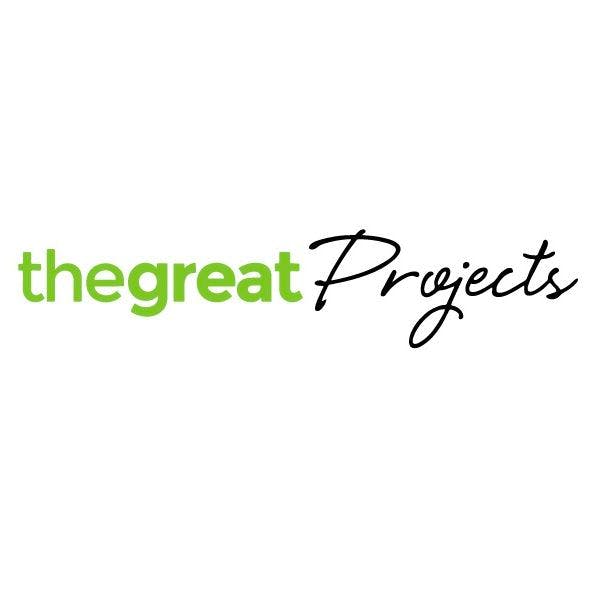
The Great Projects
Agency - founded in 2003
Verified by Volunteer World
Coordinated by
Lauren
About the project
195 reviews ·  4.6
4.6
Location

You might also be interested in
-
Diving
Great White Sharks
Shark Conservation
Global Volunteer Opportunities
Group Volunteering
Animals in Africa
Best Volunteer Programs
Animals in South Africa
Marine Big 5
Adults
Projects Abroad
Great White Shark in South Africa
Mission Trips to Africa
Planning a Gap Year in South Africa
Volunteer Trips for College Students
Couples
Voluntouring
Mission Trips
